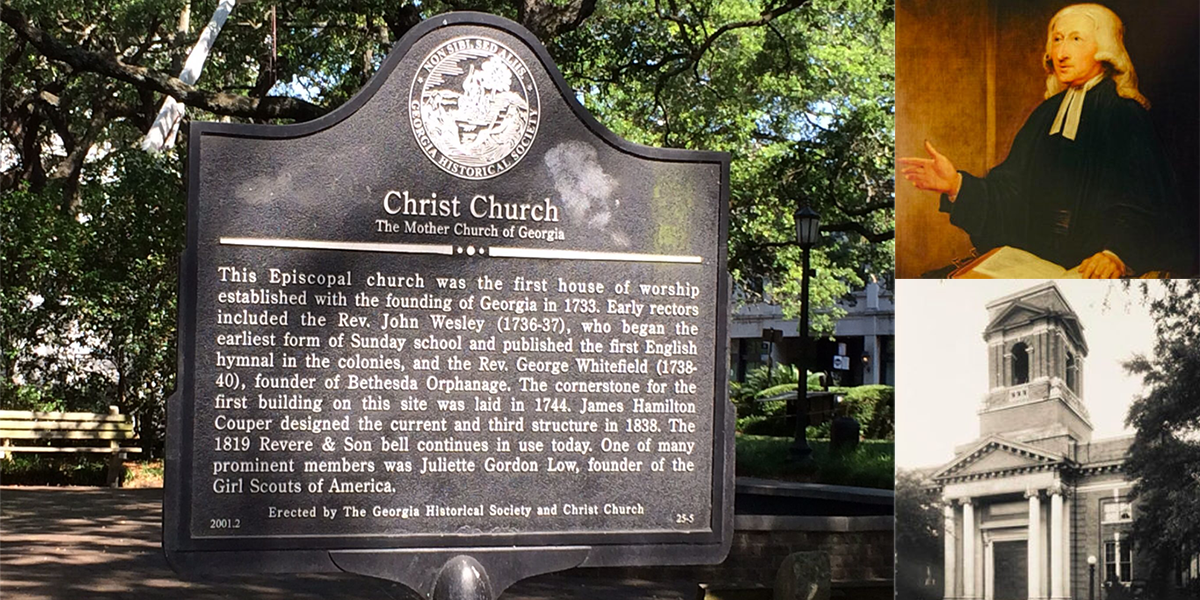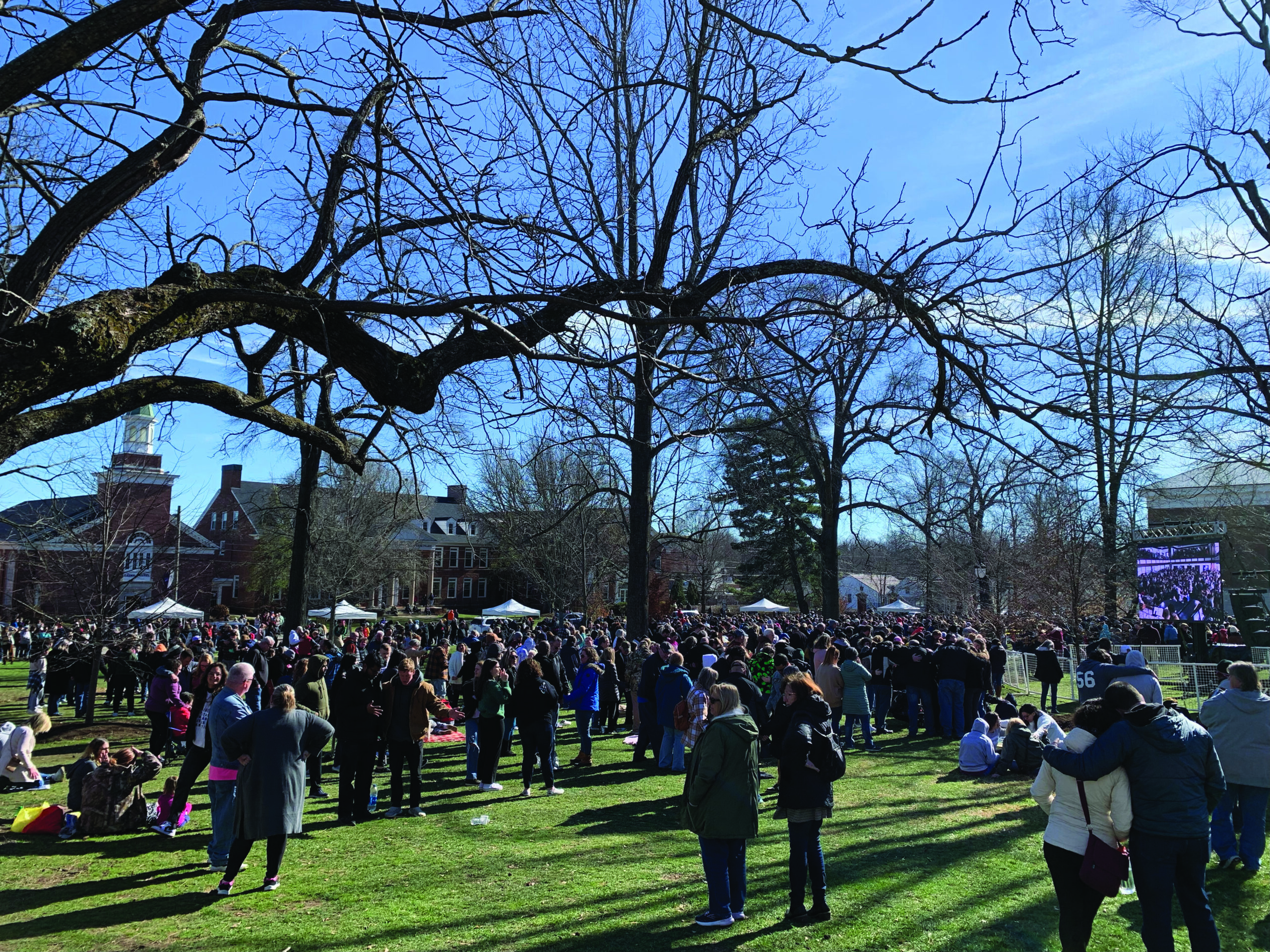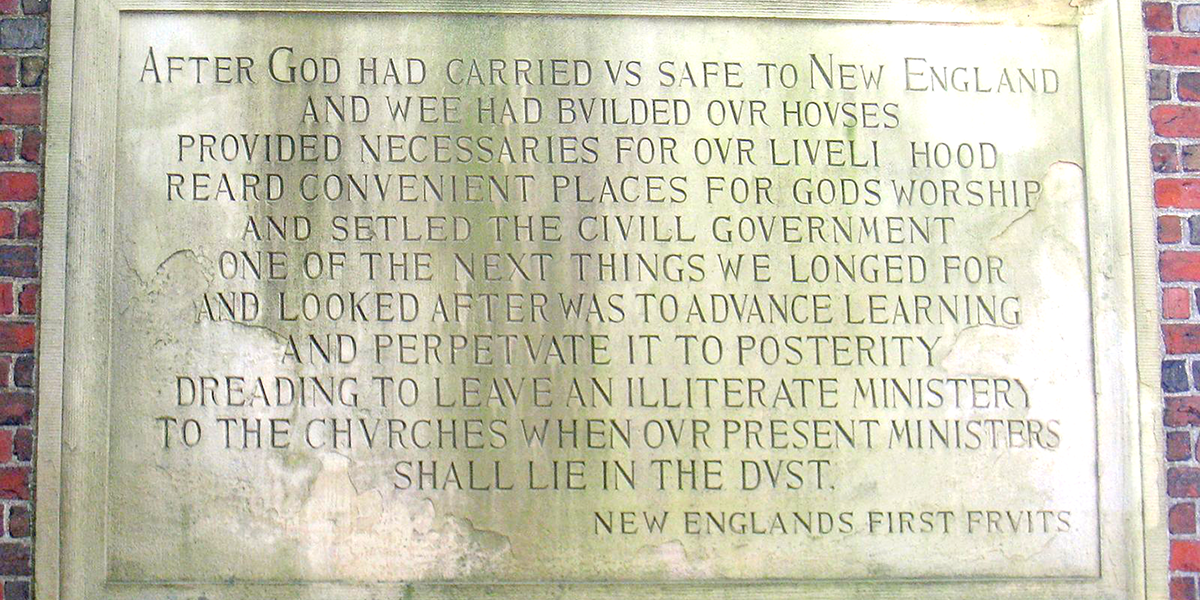Christmas Eve 2014 marked a significant transition point for a group of passionate pioneers who officially resettled in a historic land of opportunity, but in a new location, continuing an adventuresome ministry journey nearly three centuries old. Their unique story began on Thursday, February 12, 1733, when Anglican members of the Church of England landed at a high river bluff some 15 miles inland from the Atlantic Ocean with a group of settlers and a charter from the King of England, and formally founded the city of Savannah and the colony of Georgia.
The following Sunday, General James Oglethorpe and his fellow Trustees met under a tent and held the first Anglican Christian worship service in the newest American colony. Over the next 274 years, this Mother Church of Georgia and the longest continuous Christian congregation in the state faithfully proclaimed that Jesus Christ is the Way, the Truth and the Life, and that the Bible is the inspired and authoritative Word of God.
Their congregation’s historic ties include two leaders of the Great European and American Awakening – their third rector (i.e. “pastor”), Rev. John Wesley, and fourth rector, Rev. George Whitefield – as well as the founder of the Girl Scouts of America and lifetime church member, Juliette Gordon Low.
After selecting Savannah as the colonial capital of the newly established Royal Colony of Georgia in 1751, the Royal Council granted the congregation, known as Christ Church, full and legal ownership of its church building and cemetery.
Following the American Revolution, the newly established state of Georgia legislature confirmed the Christ Church parish in 1789 as a legal corporation defined, bound, and protected by the state and with clear title to its property. That same year, in order to withdraw from allegiance to the authority and supremacy of the King of England, a new denomination called “The Episcopal Church” formally constituted in the newly formed United States of America to distinguish itself from the Church of England. The Episcopal Dioceses of Georgia formally constituted in 1823, and elected their first Episcopal bishop in Georgia in 1840.
Thus, the Christ Church congregation, along with their property, predated the formal existence of The Episcopal Church as a whole for 56 years, predated the formation of the state Diocese by 90 years, and predated the election of the first bishop in Georgia by 107 years. At no point during the parish’s history did they take money from their church’s national denomination or agree to hold their property in trust for any other entity, including the state, national, or worldwide Episcopal Church or dioceses.
Eventually, after many years of exciting growth, faithful service, and fruitful mission in their historic location, the turn of 21st century brought with it a marked shift in behaviors and teachings by leaders among the larger body of churches collectively known as The Episcopal Church. In some cases, Episcopal rectors, and even bishops, denied traditionally historic fundamentals of the faith. Some denominational leaders claimed the Bible was not God’s Word, and Jesus Christ was not the only way to salvation.
In 2002, the bishop of The Episcopal Diocese of Washington, DC proclaimed, “The story of Jesus’ bodily resurrection is, at best, conjectural…the resurrection accounts in the four Gospels are contradictory and confusing…the significance of Easter is not that Jesus returned to actual life but that even death itself could not end the power of his presence in the lives of the faithful.”
Other denominational leaders said about the Bible, “Men wrote it, men can change it.”
Jesus was explained as “an avenue to the divine” and “a Way, Truth, and Life,” but certainly not someone to be worshiped or believed in exclusive of other religions and religious leaders. Words such as “atonement,” “faith,” “resurrection,” “Gospel,” and even “Jesus Christ” became metaphors of religion instead of cornerstone truths of Christianity. Over time, Christ Church leaders began to believe that some of the leaders in their denomination were more interested in converting traditional theology to liberal interpretation than converting souls to Christ.
When the General Convention of The Episcopal Church elected their first openly gay, non-celibate bishop in 2003, the event served as a wake-up call to many Christ Church members. The deepening divide between wider denominational associates and their own, local congregation suddenly became much clearer.
After several years of study, prayer, and exploration, the rector and 13 church leaders (collectively called the “vestry” – the ruling body of the local congregation) voted unanimously to disaffiliate from The Episcopal Church. Their reasons included to stand firm for the Gospel, to protect the pulpit of John Wesley and George Whitefield from heresy, and to bring awareness to others of dangerous theological trends. Two weeks later, the vestry offered their decision to the congregation for a vote, and on October 13, 2007, 87% of the members present agreed and voted to realign with another Anglican province of like-minded congregations in Uganda.
Within a few weeks, in November 2007, The Episcopal Diocese of Georgia filed suit against the Christ Church parish and personally against the rector and each of the vestry members. The national Episcopal Church joined the suit soon thereafter with a goal of obtaining control of Christ Church’s assets, which included $6.5 million in real estate and a $2.3 million endowment.
The state and national church based their claims on a denominational law adopted in 1979 entitled “The Dennis Canon,” which stated that parishes hold property in trust for their diocese. The law – named after an attorney in New York named Walter Dennis who wrote and proposed it as a solution in response to Episcopal Church congregations who wanted to leave the denomination – stated, “All real and personal property held by or for the benefit of any Parish, Mission, or Congregation is held in trust for this Church [i.e., TEC] and the Diocese thereof in which such Parish, Mission or Congregation is located. The existence of this trust, however, shall in no way limit the power and authority of the Parish, Mission or Congregation otherwise existing over such property so long as the particular Parish, Mission or Congregation remains a part of, and subject to, this Church and its Constitution and Canons.”
In contrast, Christ Church leaders maintained that their battle was about maintaining the integrity of the Gospel, not about keeping brick and mortar. They believed they had a call to stand firm for the Gospel in defense of the historic Christian faith, primarily because their denominational leaders, similar to some leaders in other denominations, were openly denying fundamentals of the faith.
“We are not fighting over the building, we are fighting over the Gospel,” noted Rev. Marc Robertson, Rector of Christ Church. “This building was erected to be a platform from which the Gospel is proclaimed.”
Although local church leaders attempted to negotiate with the diocese and the denomination, the plaintiffs refused to negotiate in good faith or drop the personal lawsuits against the 14 individuals. The four-year legal journey cost the church nearly $1 million dollars. Eventually, the Georgia Supreme Court ruled against Christ Church and in favor of the national Episcopal Church and the Episcopal Diocese of Georgia.
Shortly thereafter, on December 11, 2011, Christ Church held a final worship service in their main building located on one of Savannah’s 22 historic downtown squares. At the close of that service, 400+ members of the congregation walked nearly 10 blocks south to Independent Presbyterian Church (IPC), founded in 1755, where they were welcomed by more than 600 IPC members. When the Christ Church group arrived, IPC’s pastor, Rev. Terry Johnson, proclaimed, “Our faith is your faith and our buildings are your buildings!”
After the state ruling, in an attempt to help settle the matter once and for all – and perhaps serve as a representative case for the more than 100 other Episcopal churches and 3 dioceses also being sued by the national Episcopal Church at the time – Christ Church appealed to the Supreme Court of the United States. The appeal was filed in March 2012, and the Supreme Court notified the parties in June 2012 that they had decided to refuse to hear the case, thereby confirming the Georgia Supreme Court ruling.
In the meantime, in May 2012, Christ Church reached a settlement with The Episcopal Church that included dropping the $1.3 million dollar personal lawsuits against the 14 individuals, handing over claim to all property and financial assets, and changing the name of the now disassociated congregation to “Christ Church Anglican,” while still allowing historic claim to the church’s 1733 roots.
Since then, the state and national church have appropriated all of Christ Church’s former assets and now operate under the name “Christ Church Episcopal.” Christ Church Anglican, meanwhile, found themselves blessed by a coalition of other local congregations who expressed tangible support during their journey to secure a more permanent home.
“To get the Scots and Brits working together is a miracle in and of itself,” noted one church leader, “and it has been even more exciting that we are united around a common, orthodox understanding of Scripture.”
Along the way, the congregation launched a new community foundation in a poverty stricken area of the city of Savannah, and also bought old church facilities in the area to renovate for their new home. In conjunction with the Whitefield Foundation – organized to seek to “transform the heart of their city one life at a time” – Christ Church Anglican plans to continue their historic mission to “worship Jesus Christ and to preach, teach, and live the Gospel with integrity and fervor, seeking the welfare of the city of Savannah, the region and the world, to God’s glory.”
Although their journey proved difficult and fraught with potentially dangerous implications and harsh personal liabilities, Rector Robertson, notes, “When you get a chance to really live out what you believe in your heart, and it is no longer abstract and theoretical, boy, there’s something exciting about that!”
One of the lay leaders named in the suit summarizes, “We have realized that perhaps the real purpose of our journey was much bigger than winning a case or impacting a denomination, but about changing lives. Our ministry is changing lives, and our lives have been changed because of what we have been through.”
Now, more than 280 years after their first worship service on a high bluff at the beginning of a pioneering adventure that helped birth a new nation and positively impact people and nations around the world, Christ Church Anglican has joyfully entered a new season of life and ministry as they continue to uphold the Bible as the inspired and authoritative Word of God and faithfully proclaim that Jesus Christ is the Way, the Truth and the Life.

Originally published in Meat and Potatoes for the Soul 2, 2015.




